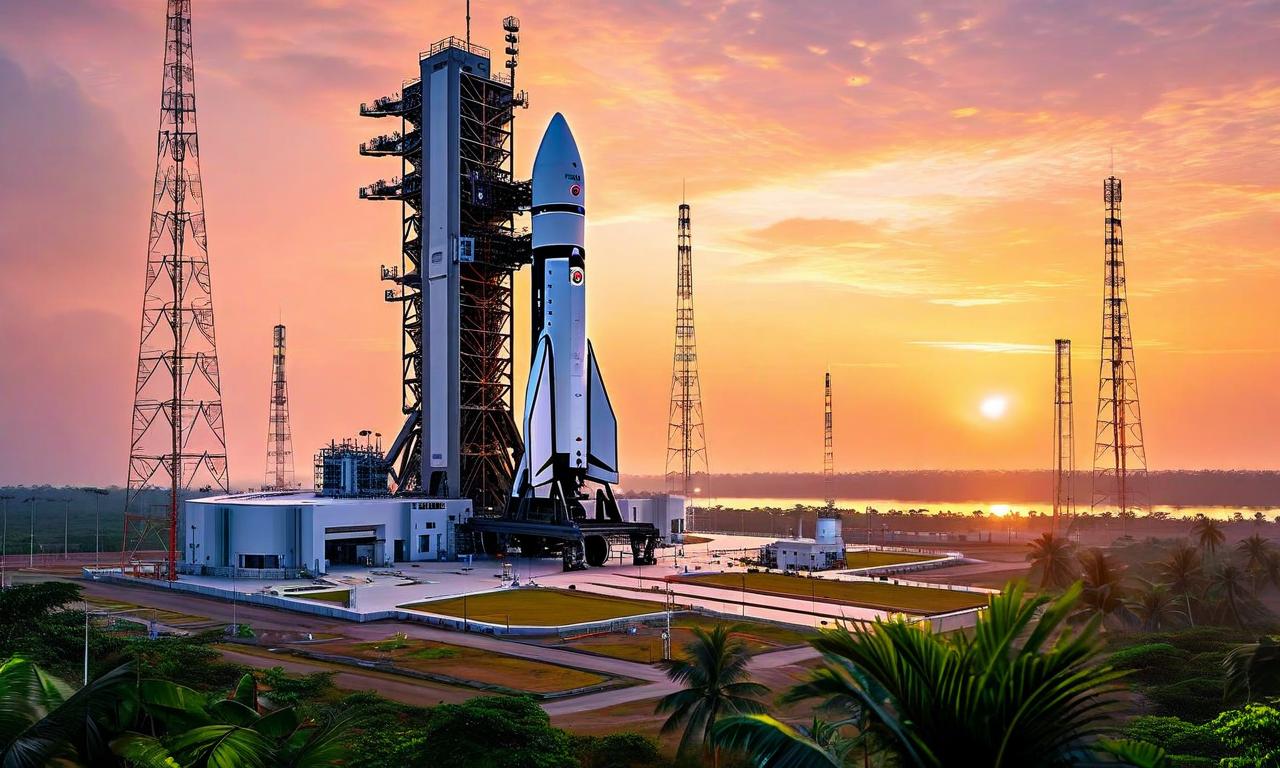ISRO, HAL Ink Landmark SSLV Technology Transfer Deal
NewSpace India Limited, ISRO, IN-SPACe, and Hindustan Aeronautics Limited have signed a technology transfer agreement to commercialize the Small Satellite Launch Vehicle (SSLV) technology. The SSLV, developed by ISRO, can launch satellites up to 500 kg into Lower Earth Orbit. Launches will be conducted from Sriharikota and the upcoming site in Kulasekarapattinam. This collaboration aims to boost India's space sector, meet global demand for small satellite launches, and enhance the country's space technology capabilities.

*this image is generated using AI for illustrative purposes only.
In a significant move set to bolster India's space capabilities, key players in the country's aerospace sector have joined forces to commercialize the Small Satellite Launch Vehicle (SSLV) technology. NewSpace India Limited (NSIL), the Indian Space Research Organisation (ISRO), IN-SPACe, and Hindustan Aeronautics Limited (HAL) have signed a pivotal technology transfer agreement, marking a new chapter in India's space exploration and satellite launch services.
SSLV: A Game-Changer in Small Satellite Launches
The SSLV, developed by ISRO, is a three-stage, all-solid vehicle designed to cater to the burgeoning global small satellite launch market. With its capability to launch satellites weighing up to 500 kg into Lower Earth Orbit, the SSLV is positioned as a quick turnaround, on-demand launch vehicle primed for industrial production.
Strategic Launch Locations
The agreement opens up exciting possibilities for satellite launches from two strategic locations:
- Sriharikota, Andhra Pradesh: For inclined launches
- Kulasekarapattinam, Tamil Nadu: An upcoming site for polar launches
This dual-location strategy is expected to provide flexibility and enhance India's satellite launching capabilities.
Key Signatories
The technology transfer agreement was signed by high-ranking officials from the participating organizations:
- Mr. Jayakrishnan S, CEO of HAL
- Dr. A. Rajarajan, Director of ISRO's Vikram Sarabhai Space Centre (VSSC)
- Mr. M. Mohan, Chief Managing Director of NSIL
- Mr. Rajeev Jyoti, Director of IN-SPACe
Implications for the Indian Space Ecosystem
This collaboration is expected to have far-reaching effects on India's space sector:
Boost to Local Industry: The agreement is set to energize the Indian space ecosystem by involving private players in high-tech space projects.
Meeting Global Demand: With the commercialization of SSLV, India is poised to meet both national and international demand for small satellite launch services.
Economic Impact: The deal is likely to create new opportunities for the aerospace industry and potentially attract foreign investment in India's space sector.
Technological Advancement: The transfer of SSLV technology to HAL is expected to foster innovation and enhance India's space technology capabilities.
Looking Ahead
As the global small satellite market continues to grow, India's strategic move to commercialize SSLV technology positions the country as a key player in this competitive field. The collaboration between government space agencies and the private sector marks a new era in India's space journey, promising exciting developments in the coming years.
This technology transfer agreement not only showcases India's prowess in space technology but also demonstrates the country's commitment to fostering a robust and competitive space industry. As the SSLV program moves forward under this new partnership, it will be interesting to watch how it shapes the future of small satellite launches both in India and on the global stage.
























